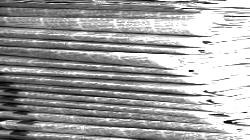No More Oops: Preventing Media
Mistakes
by Marcia Yudkin
Few marketing successes compare to the letdown of discovering that a major media outlet has covered your story - with a hefty error included. Certain mistakes carry new consequences now that many newspapers, magazines, online-only news sites and even TV and radio stations archive their material online.
If they misspell your name or that of your company, that article might not come up for Web searchers hunting for the story afterwards. And of course if they get your phone number wrong, calls won't come in. With a URL missing a hyphen, your
web traffic won't spike.
When a media mention involves a telephone or in-person interview, volunteer to provide backup information that includes the main facts clearly and correctly laid out. Send that by email, by fax or by referring them to a certain
web site. Anytime a reporter has something written to refer to along with their notes (Was it "Hire Authority" or "Higher Authority"?), mistakes become less likely.
During the interview, call attention to details that would be easy for a deadline-pressed writer to get wrong. For instance, when I spoke by phone with a writer named Lary Crews for an article, he not only advised me that "Lary" had just one "r," he suggested I confirm the unusual spelling to my editor and pass along a note for the proofreader so that his first name wouldn't be corrected to the more common "Larry."
Apart from misspellings, choose your words carefully and consciously during the interview, knowing that your listener is probably going to construe whatever you say literally. If you say that you're located in Boston, but your office is actually one city over, in Brookline, an inaccurate location could be attributed to your company. Say something about London and the reporter may assume you meant the capital of England rather than the city by that name in Ontario. Listen as you talk to avoid such misunderstandings.
|
Improve Your Odds for Media Coverage
Discover how to generate dozens of ideas that reporters, broadcasters - and your prospective customers - love. Inject dynamism, relevance
and surprise into your media pitches.
Learn how to distill your message so it captures attention right away, then bolster your credibility and eliminate factors that turn off editors and producers.
Publicity
mastery course. |

Publicity mastery course |
|
Another measure to help prevent media errors is to fact-check your own news release as rigorously as the fussiest magazine would, before you send it off into cyberspace. Actually dial any phone numbers in it (it's easy to transpose digits without realizing it); copy and paste, then click to all the URLs you provided (if you have a comma in place of a dot, all is lost!); and look closely at any dates. In early January, especially, it's easy to forget that the year is,
say, 2010 instead of 2009, a slip that could provoke confusion or dismissal in a reader.
Never ask a reporter if you can review the article prior to publication - that's a no-no at most reputable media outlets. However, it works well to say at the end of an interview, "Don't hesitate to call or email if you have a question while you're writing this up. Here's my cell phone number." That way, a reporter who isn't certain of something checks with you, and when your eagerly awaited media coverage appears, you're all smiles.
Copyright 2009 Marcia Yudkin.
All rights reserved.
Online Courses Related to Publicity
The Press Release Makeover Course
Deep Publicity
Marketing for Introverts
Create a Practical Marketing and Publicity Plan |






